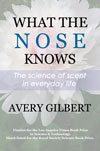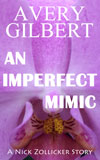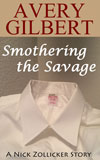
So you’ve exchanged a few text messages with that guy you met on VeganSingles.com, you’ve carefully chosen an outfit that’s alluring yet not Jersey Shore-ish, and you’re heading out the door for your first face-to-face, hoping for the best.
Remember one thing: get a good sniff of Mr. Eligible before taking things to the next level.
That’s the net-net from a new paper in the Journal of Sexual Medicine. Extending to humans a finding that has been well established in rats and mice, a team of Russian scientists has found that guys battling an infectious disease smell, uh, somewhat “putrid” in the armpits. And since the disease in question is gonorrhea, rank BO is another thing to watch for, along with whether he pays for the drinks and holds the door.
Mikhail Moshkin and colleagues from scientific institutes in chilly Siberia used the now-classic cotton-pads-pinned-into-T-shirts technique to collect axillary odor from young men. The odor donors included guys with current gonorrhea infection, guys cured of same, and guys who were never infected. A group of young women rated the BO samples for strength and pleasantness, and described them using a list of adjectives.
The results in a nutshell: infectious disease reduces a person’s odor attractiveness, and
The odor of infected persons was more often associated with a putrid smell. The odor of recovered persons was more often associated with a floral smell.Moshkin et al. observed the usual experimental niceties: the odor donors refrained from eating spicy food for two days before the study, the odor judges did not use hormonal contraceptives, and the BO samples were stored at -20°C. The judge’s menstrual cycle phase made no difference to the outcome.
Saliva sample from the male odor donors were analyzed for testosterone, cortisol, and immunoglobulins A and G. None of these measures differed significantly among the three test groups. However,
while salivary IgA and IgG concentrations were insignificantly higher in the infected persons, they correlated negatively with pleasantness scores and positively with prevalence of putrid associations. A high level of the nonspecific salivary immunoglobulins reflects activation of the defensive mechanisms due to general antigenic pressure on the immune system. Several studies on laboratory animals demonstrate that antigen-induced immunoenhancement leads to reduction of male scent attractiveness.Another small victory for the human sense of smell. Forget about electronic noses, trained service dogs, or hacking into private medical records. Just use your nose.
The study discussed here is “Scent recognition of infected status in humans,” by Mikhail Moshkin, Nadezhda Litvinova, Ekaterina A. Litvinova, Alena Bedareva, Andrey Lutsyuk, and Ludmilla Gerlinskaya, published in the Journal of Sexual Medicine, ahead of print, on December 6, 2011.




No comments:
Post a Comment